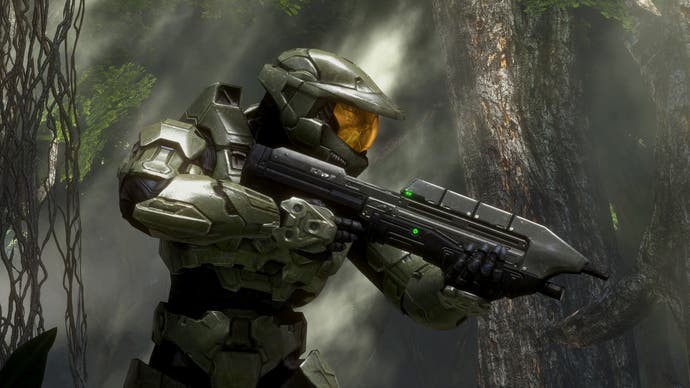Looking for the heart of Halo in Bungie's finest moment
Revisiting the bombastic Halo 3.
I've had an extremely good time revisiting Halo 3, but you can have almost as good a time just reading what the people of 2007 had to say about it. Halo 3 - and this is news to me, fifteen and blissfully ignorant at the time - was apparently one of those battleground games, where lines were drawn and sides chosen in arguments about what it meant for the future of medium. In 2007, Call of Duty 4: Modern Warfare was that future of big-budget gaming because, as one half of our enjoyably angsty retrospective put it the following summer, "it experiments with means of storytelling that are specifically about being a videogame, not a movie." Call of Duty's storytelling was interactive, you see, and Halo's action tired, its cutscenes archaically passive.
What's great is how cyclical it all is. Follow that thought all the way through to today and Call of Duty's progress seemed to hit a rather jarring brick wall - something about pressing F and paying respects. And today's tastes, meanwhile, are if anything obsessed with the systemic; storytelling is now considered best when it's emergent and player-directed, as opposed to the occasional quick-time button-press in what's otherwise painstakingly scripted. This is what the mainstream rediscovered with PUBG and Breath of the Wild, and the playable, writeable hang-out zone of Fortnite, I'd argue - what gaming's intelligentsia loves about the work of studios like Arkane, IO Interactive and Larian. As a result, attempting to recapture some magic, Call of Duty and Halo have both turned back to their past: CoD with Modern Warfare Remastered and 2019's Modern Warfare; Halo with Halo Infinite, which seems overtly pitched as a return to the colourful vibes of Combat Evolved.
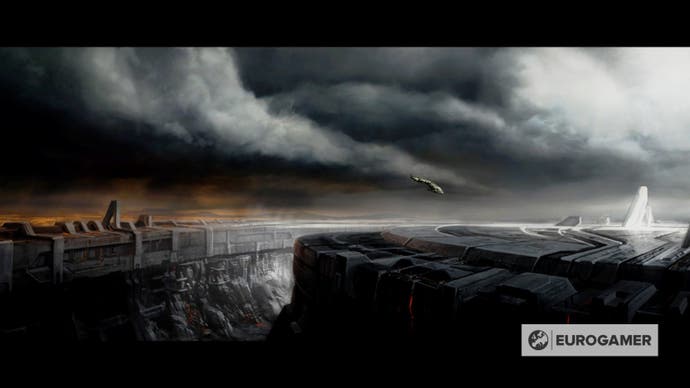
Anyway, circle back to Halo 3 and marvel with me, will you, at just how little it cares about any of this. As modern follow-ups increasingly resemble a playable existential crisis, Halo 3 is a masterclass in force of will. Total self-assuredness, Bungie a team playing with the freedom created by confidence, if you fancy it in sporting terms. The result is a kind of immaculate clarity. It's pure reward: yes, you may carry the machine gun turret; yes, you may have a bigger laser; yes, you may drive the tank. Only the turret's a true first out of those, but it's not about novelty so much as generosity. For all the biblical gibberish in Halo's story, the way grunts like to call you "the Demon" does at least stick. Halo 3's generosity feels like power earned through a very good deal with the devil.
Behind all of this is a work of genuine genius in playable action. There's a well-worn but still perfectly angled power curve, starting with what's actually one of the game's hardest levels, the African jungle section of Sierra 117, riddled with snipers and brutes, which builds through each mission, via dual-wielding and Mongeese to snipers and Warthogs, and then Scorpions and Wraiths and seemingly infinite supplies of plasma swords, spartan lasers and gravity hammers. Enemies you start off dancing around - entire clusters of Covenant captains - become little specks of confetti, popping off and fizzing away when you ping them with a missile from the zoomed-out level of the Hornet (Machine guns! And rockets! And flying!) or watch on from the upper platforms of a Scarab. It's a remarkable mastery of scale, flipping and reusing what is, actually, a very small cast of enemy types in a vast range of circumstances and context to make them feel new.
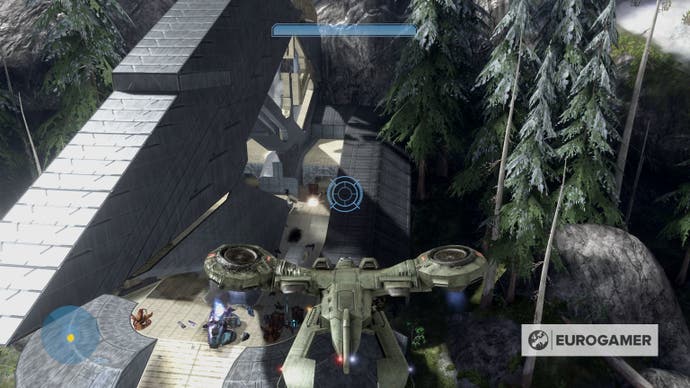
Even now there's a lingering sense of life to those enemies, too. The way they pootle about on their own accord, living odd little lives of their own before you arrive. And the life they bring to Halo 3 on death, a single grenade-carrying grunt going down and often turning into one, two, three, four explosions, ragdolls and ricochets set off by barrels and grenades and clumsy brutes shooting rockets at the most unfortunate time. How many times did I die not from an enemy hit but an enemy miss, a stray grenade sending a metal crate pranging against Chief's head from miles away? For all Call of Duty is known for its bombast, count the bangs of Halo 3. Note the booms-per-second in a mission like The Covenant. And then the crash back down to earth from the utter, hellish, bullet-wild claustrophobia of Cortana, the mission immediately following after. Back and forth Halo 3 goes, plying you with everything you need to find a rhythm - two SMGs for me please, so I may hypnotise myself into Floodgate action - and then yanking you out of it to the next, from the widest of angels to the tightest, darkest corridors. In microcosm it's a strange and jarring mix, an album jumping from ballet to thrash. In context it's operatic.
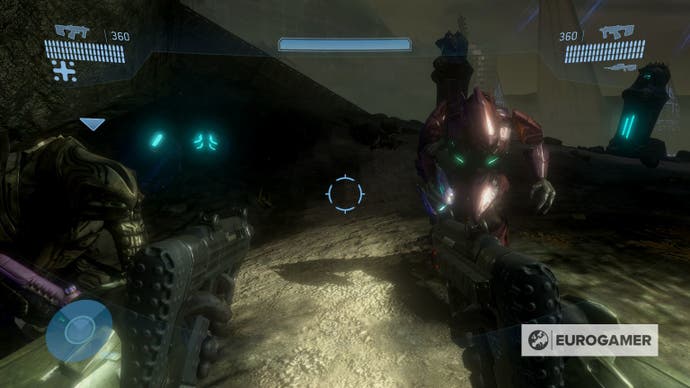
This - the controlled chaos, the fighter jet's "inherent instability", as Oli put it so ingeniously in the much nicer half of that retrospective - is Halo 3's trick, which I'm so happy for it to repeat. Bungie lines enemies up like little piles of dynamite, and gives you, a seven-year-old with a taste for pyromania, a pocket of matches, a lighter, some flint, a magnifying glass, and an actual flamethrower. You can't not play it. Even if you strip it back to the basic shapes and functions without the forms, by thinking of what this game would look like if nothing had been coloured in, and you were just playing through dotted shapes and wire frames that were still positioned where they were and reacted the way they do, it would still work. You'd still shoot them, not because they're shooting you, but because they'd still blow up.
There's more - Halo 3 does a million things well - but the more you pull at them, the more you lose sight of the point: that yes, it's brilliant, but also that you never stop to think about why. Bungie masters so many things, but in Halo 3 it masters them through unparalleled detachment - a kind of heavenly indifference and total restraint, that keeps the instability of its balance and integrity of the illusion.
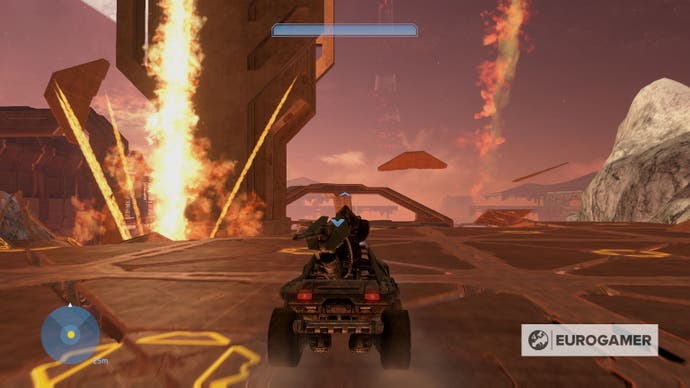
Halo 3 was a big deal, back in 2007. The biggest game of the year, if not the decade. "Never before has a videogame been so confidently, so loudly touted as an event," Edge thundered, in the opening of its 10-out-of-10 review. And it was, but all achieved without a millisecond of doubt. Self-awareness, sure - "Don't you think this is all a little... gratuitous?" guffaws one Marine, before blasting away at some Flood - but crucially it's self-aware without ever being self-conscious, never referencing itself, never stopping or worrying or asking how it's done, philosophising vainly on what it's really about. It's what keeps you looking at the trail of explosives but never wondering who it was that laid them there in such plain sight. Just the concert as it plays out - by you, but also guided by another, invisible hand. That, I think, is the secret.
